Art only gets interesting after we find ourselves standing in front of something that we are unable to immediately explain completely. Christoph Schlingensief
Young RZt
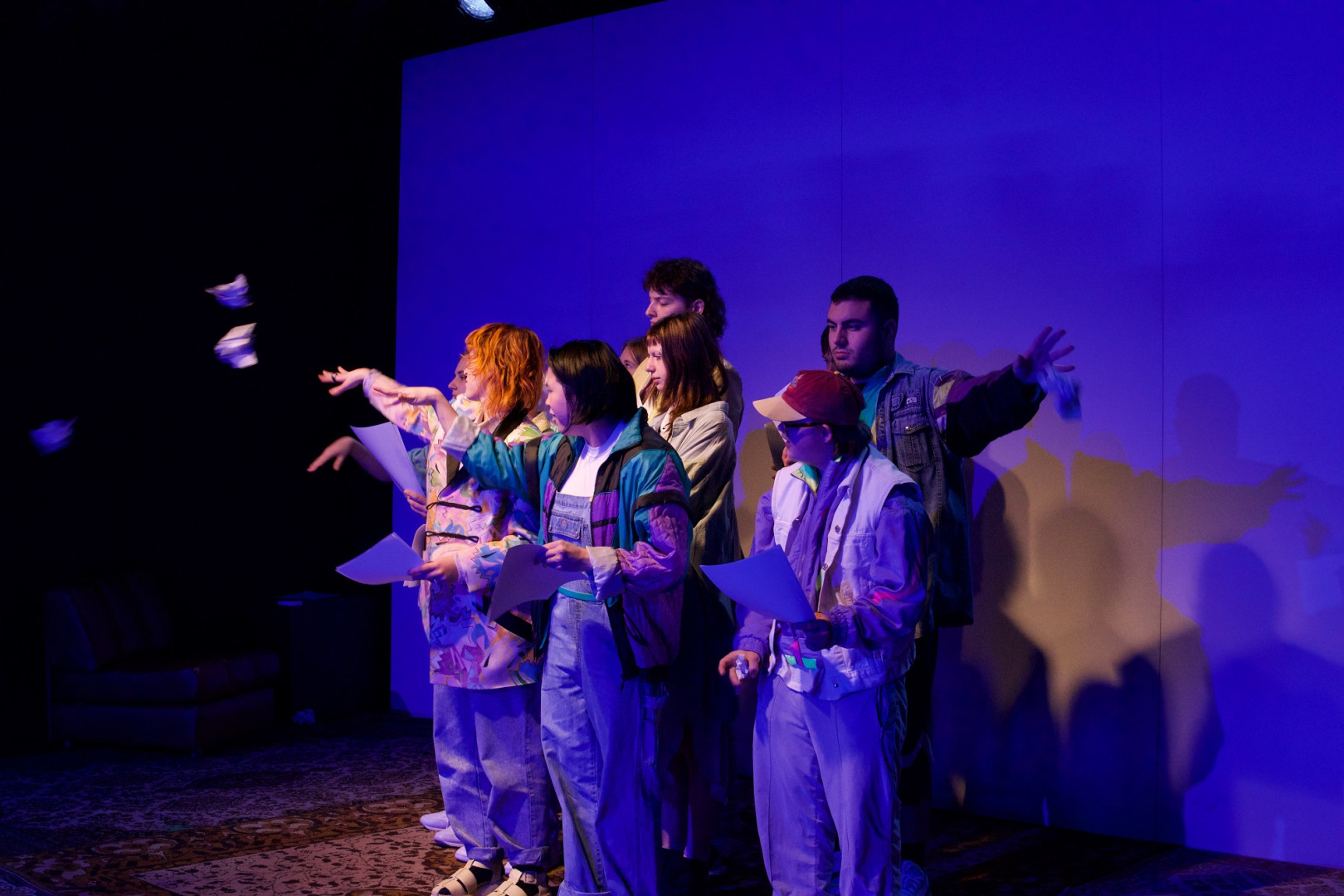
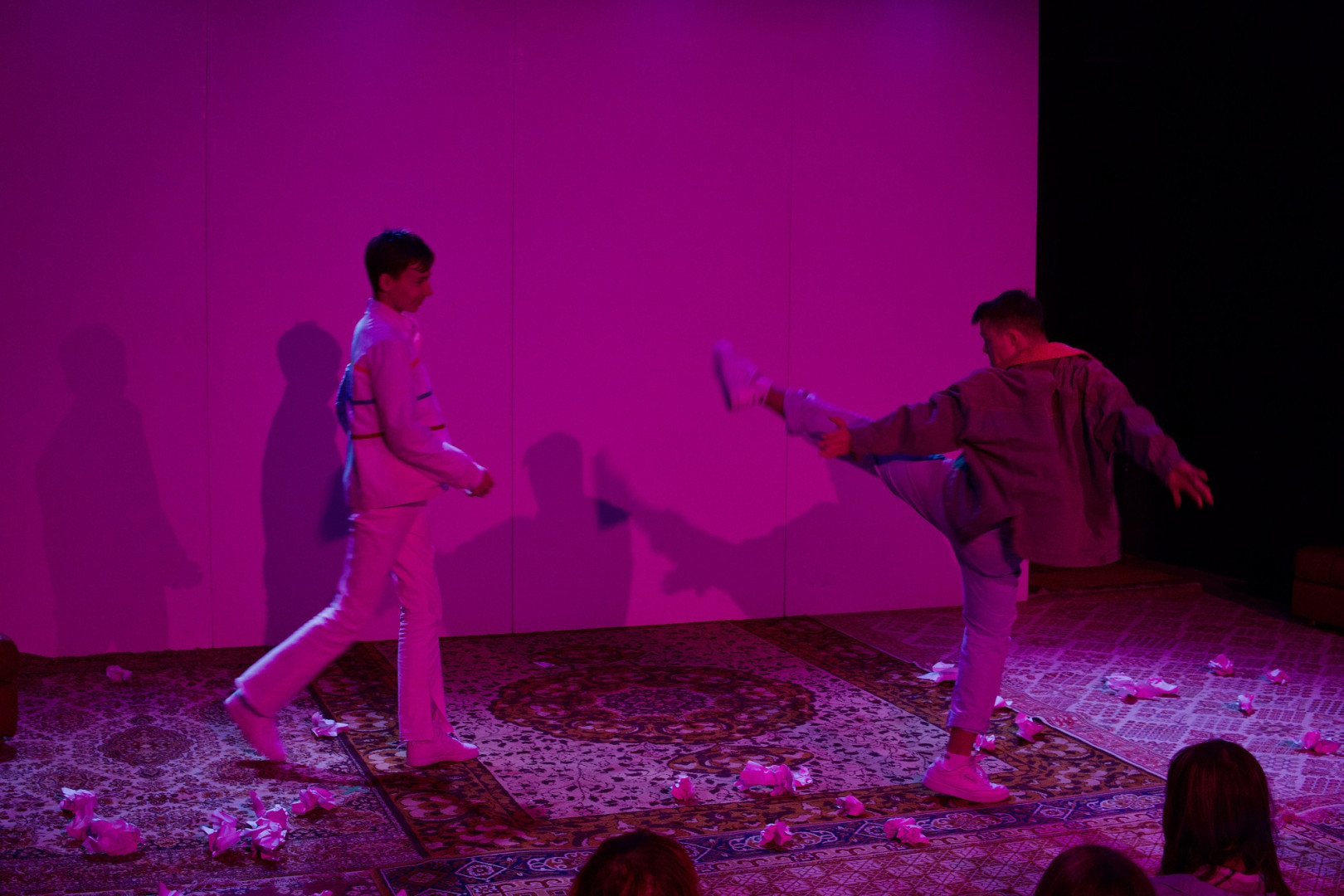
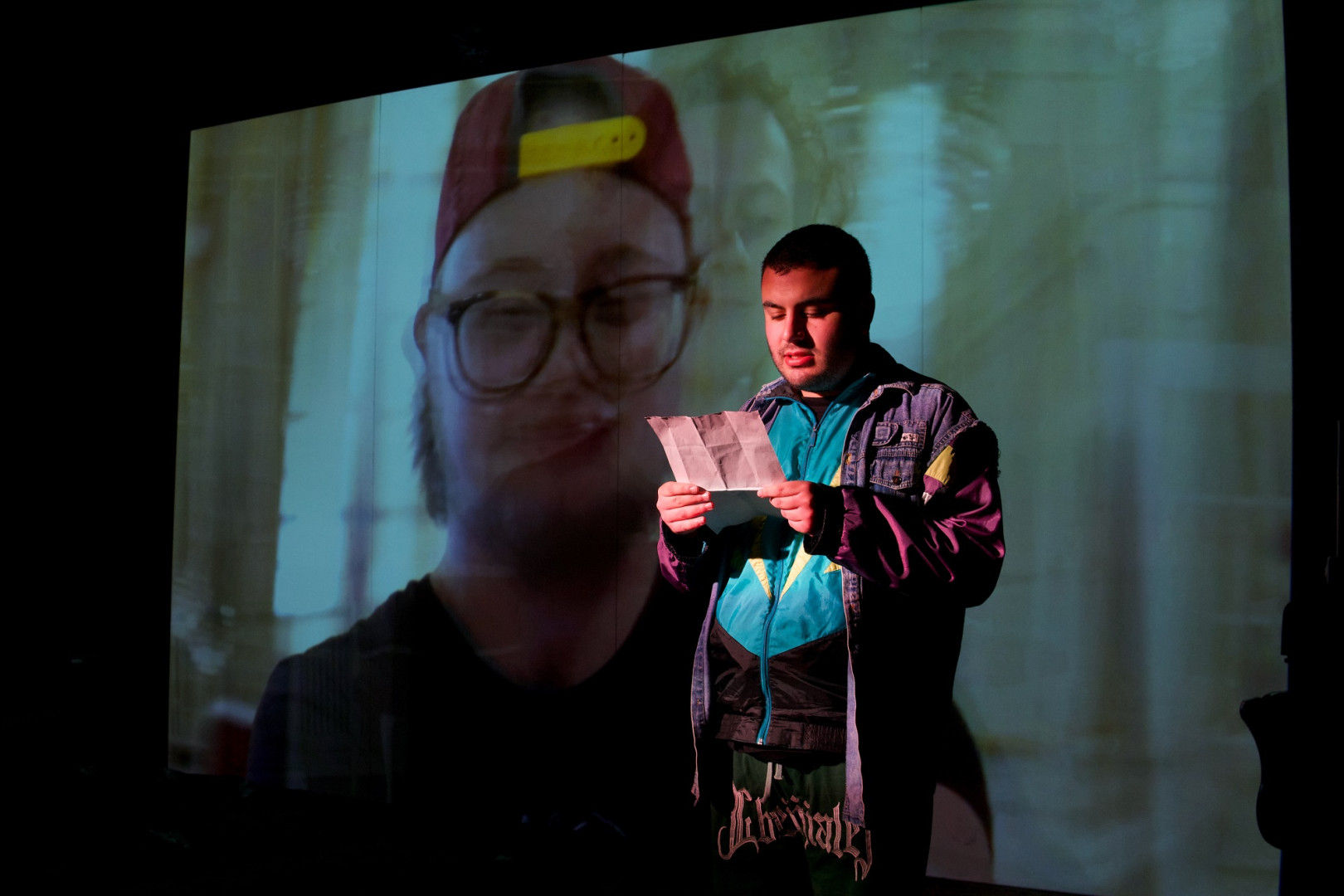
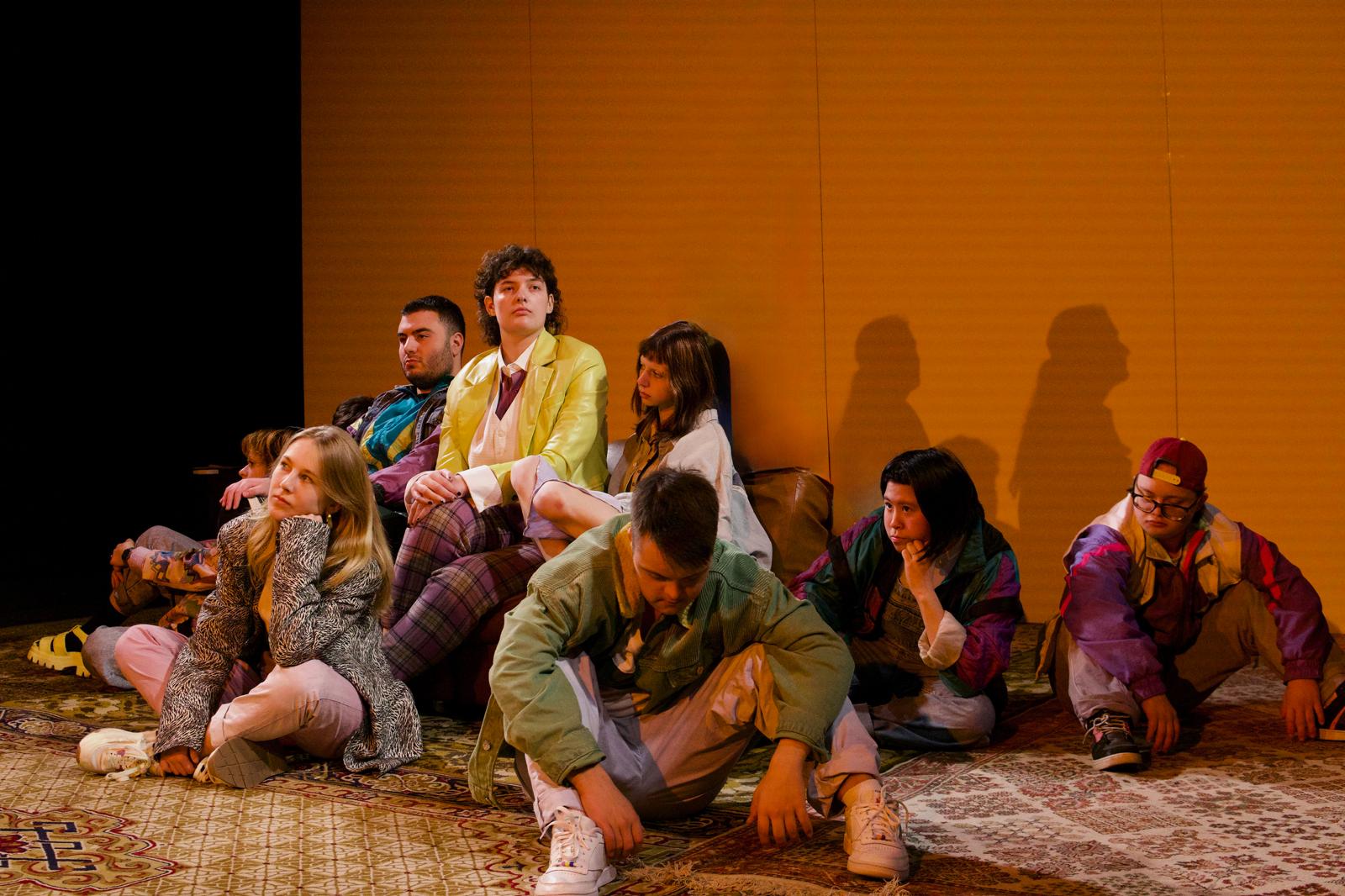
Theatre, youth and inclusion are at the heart of our work at the RambaZamba Theatre Young. We open up the theatre to young people with and without disabilities and create spaces in which different realities of life and perspectives come together. Theatre becomes a bridge for mutual understanding and enables encounters that overcome barriers.
We recommend the RambaZamba Theatre plays for all young people aged 14 and above. If you would like to come to us as a group or class, we offer various formats to accompany the theatre visits. Our formats make it possible to experience the RambaZamba Theatre as an extracurricular place of learning and to implement inclusive participation. All formats of the Young RambaZamba Theatre are free of charge and can be booked flexibly for the most part.
The Young RambaZamba is part of the theatre education working group of the Berlin theatres. In monthly meetings, a professional exchange on artistic and social discourses and current trends is encouraged, the field of art education at the participating theatres is illuminated and new impulses are set.
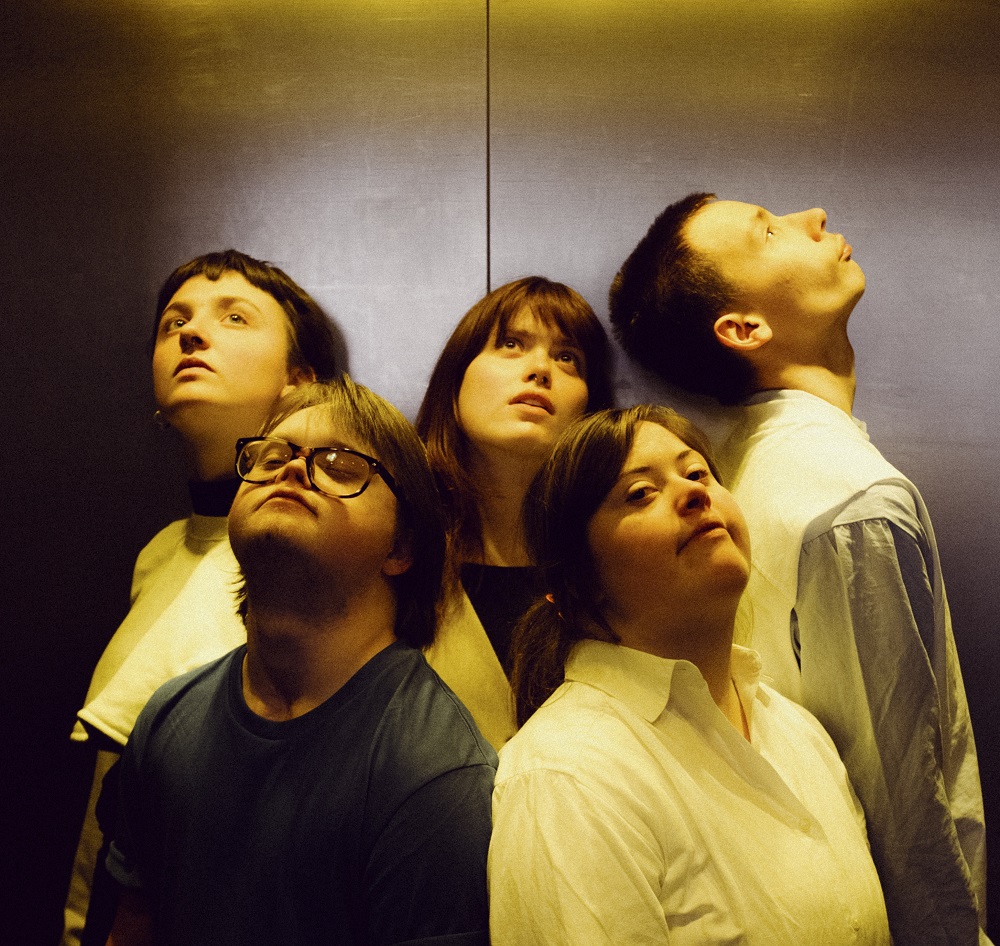
Young ensemble
FRISCH gefragt!
FRISCH gefragt!
An inclusive theatre play by the young RambaZamba ensemble
Who was Max Frisch again?
Oh yes - the one with the questionnaire. This was the starting point for asking our own questions. Open, uncomfortable, tender, honest questions. We listened to each other. Contradicted each other. Found ourselves again - and looked for answers. Or maybe it's not about answers at all, but about the right questions?
‘What makes me really happy?’
This central question runs through the play - personally, honestly, sometimes loudly, sometimes quietly. It's about love, friendship, fears and hopes. About the future. About us. Those who ask risk a lot - but sometimes discover more than expected.
What if happiness doesn't lie in solutions - but in the search itself?
In FRISCH gefragt! we bring our thoughts to the stage: as texts, as movements, as images, as sound.
A participatory play development by and with: Parastu Ghashghaie, Elsa Ebeling, Anna Friedrichsen, D. B. Geißler, Amyli - G. von Gersdorff, Nadja Henß, Lara Alison Jaksch, Käthe Maj Selma Lange, Lotte Latscha, Hanna Nguyen, Ursula Raschke, Lukas Reitmeier, Niklas Ufer, Aila Wittig Stage: Lillian Bocksch and Sascha Vajnstajn Costume: Val de Licer Choreography: Fernando Balsera Film: Laura Nitsch Sound: Frieder Blume Visuals: PPPANIK Dramaturgy: Petros Mandalos Assistance: Paulina Heyse and Erna Schmidt-Oehm
Premiere: 20 July 18:00 2025 at the RambaZamba Theatre
Further performances: 21 July & 22 July 2025 11:00 at the RambaZamba Theatre
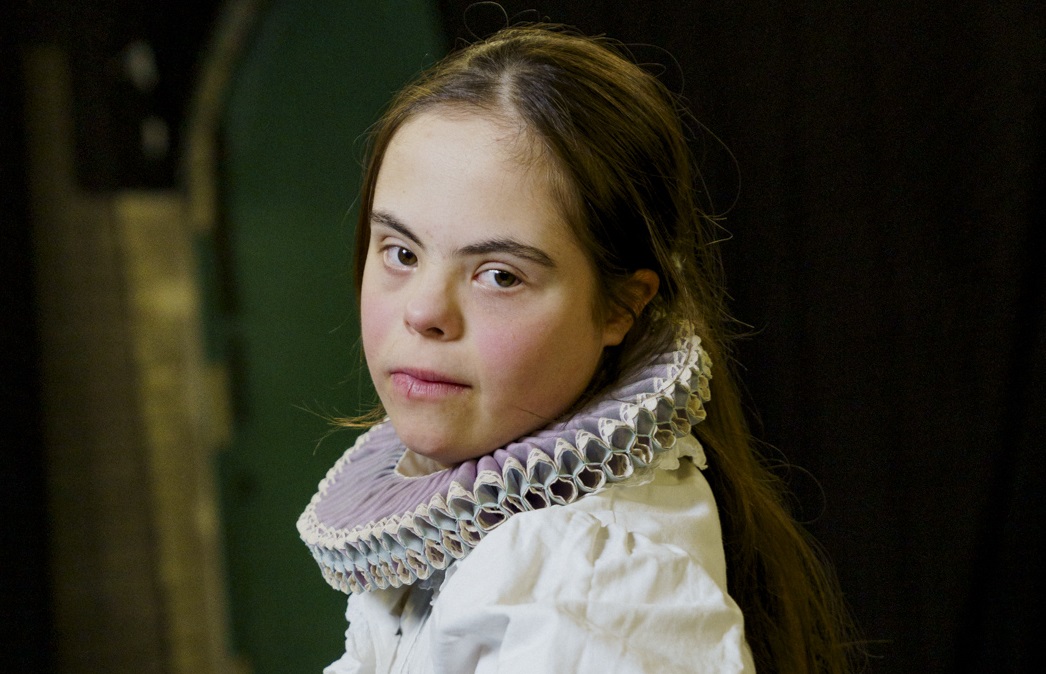
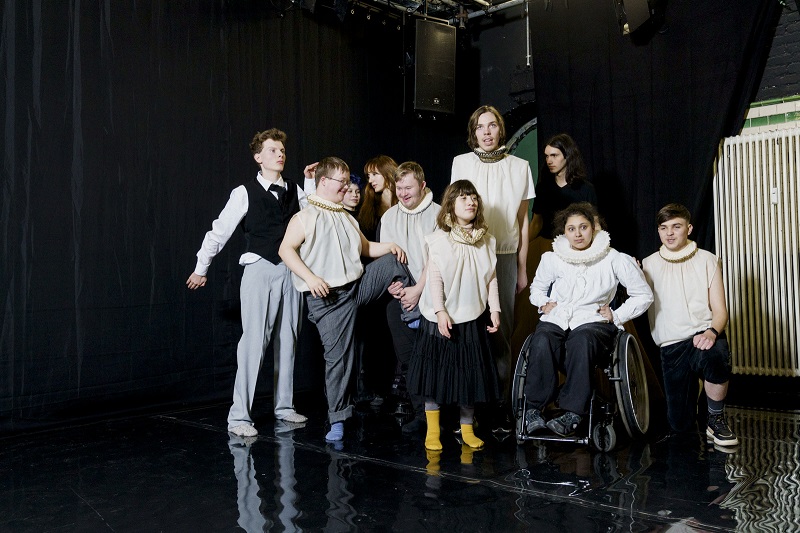
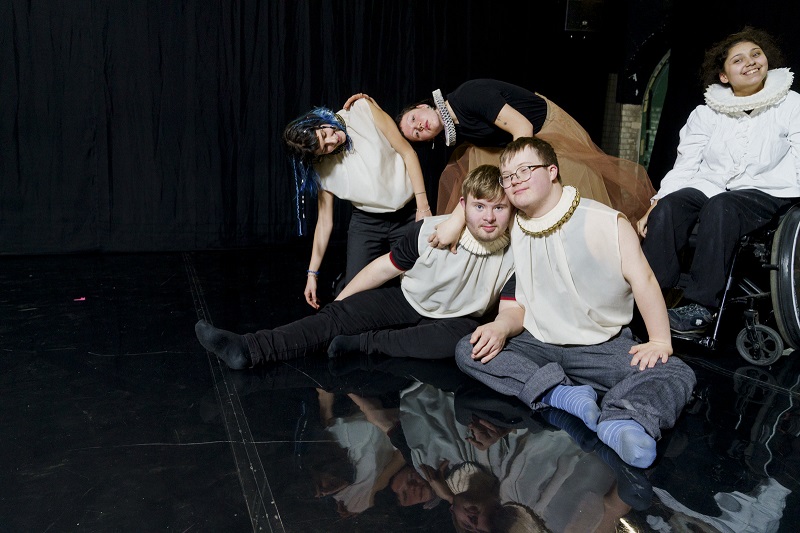
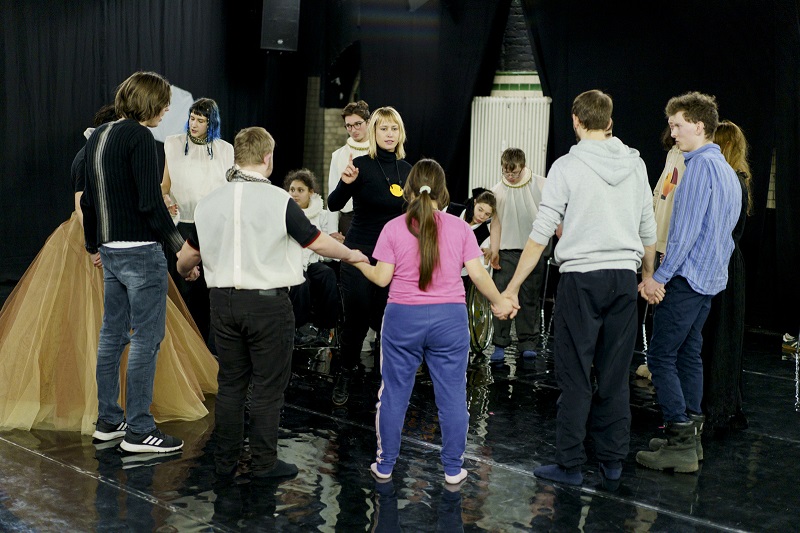
The training focusses on practical exercises on how communication can best succeed and which factors can lead to misunderstandings. True to the motto: “You cannot not communicate.” (Paul Watzlawick)
Theatre & School
Our various formats make it possible to experience RambaZamba Theatre as an extracurricular place of learning and to implement inclusive participation. We offer the following formats for all RambaZamba Theatre productions for secondary school pupils: Pre- and post-performance discussions, workshops at school and in the theatre, further training on inclusive theatre work and guided tours of the RambaZamba Theatre.
Kieztour
Together with pupils, we explore the neighbourhood around the school using artistic methods. We ask: How does the urban structure influence the realities of life? Where do pupils spend time and why? Which places encourage dialogue, which are avoided? How inclusive is the neighbourhood, and are people with disabilities part of the urban structure? How are places used and appropriated? The project can be carried out as a project day or via weekly meetings over a set period of time.
Project week
In one week, students develop a format with us on topics of their own choosing. Various artistic methods are used to create results that are presented at the end. The project week offers space for participation, exchange and new perspectives - flexibly adaptable to the school.
Communication training
The training focusses on practical exercises on how communication can best succeed and which factors can lead to misunderstandings. True to the motto: “You cannot not communicate.” (Paul Watzlawick)
TuSch3
In our TuSch3 project, the RambaZamba Theatre cooperates with the Schule am Park and the Carl Bosch School. At the end of the three-year project, the pupils from the two schools perform a jointly developed play on stage.
Audiowalk
The RambaZamba Theatre comes to your school. Via an audio walk, the pupils get to know both the RambaZamba Theatre ensemble and the work of the actors in the theatre. Through games and exercises, led by the actors, the pupils come into contact with the topic of inclusion in a playful way.
Classroom play
„Hast Du ein Bart Herr Sarah?" (‘Do you have a beard Mr Sarah?’) Is a TUSCH co-production in cooperation with the RambaZamba Theatre
When is a man a man? Or when is a woman a woman? Can people only ever be categorised in two ways? The two dancers Kaveh Ghaemi and Juliane Siebecke use body language and movement to explore what it means to be a woman and a man. They try out each other's roles and look for opportunities and freedom to rethink established gender roles.
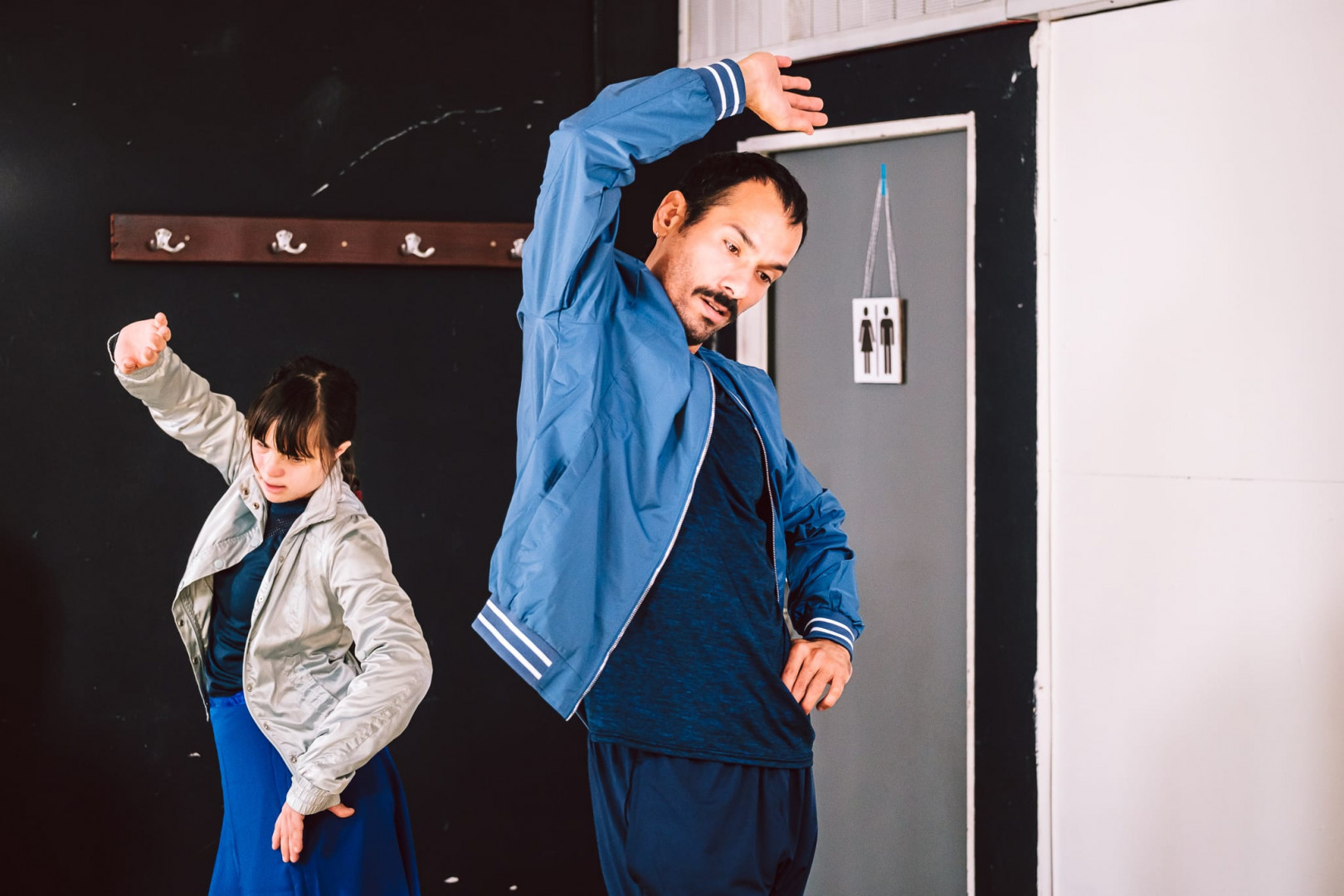
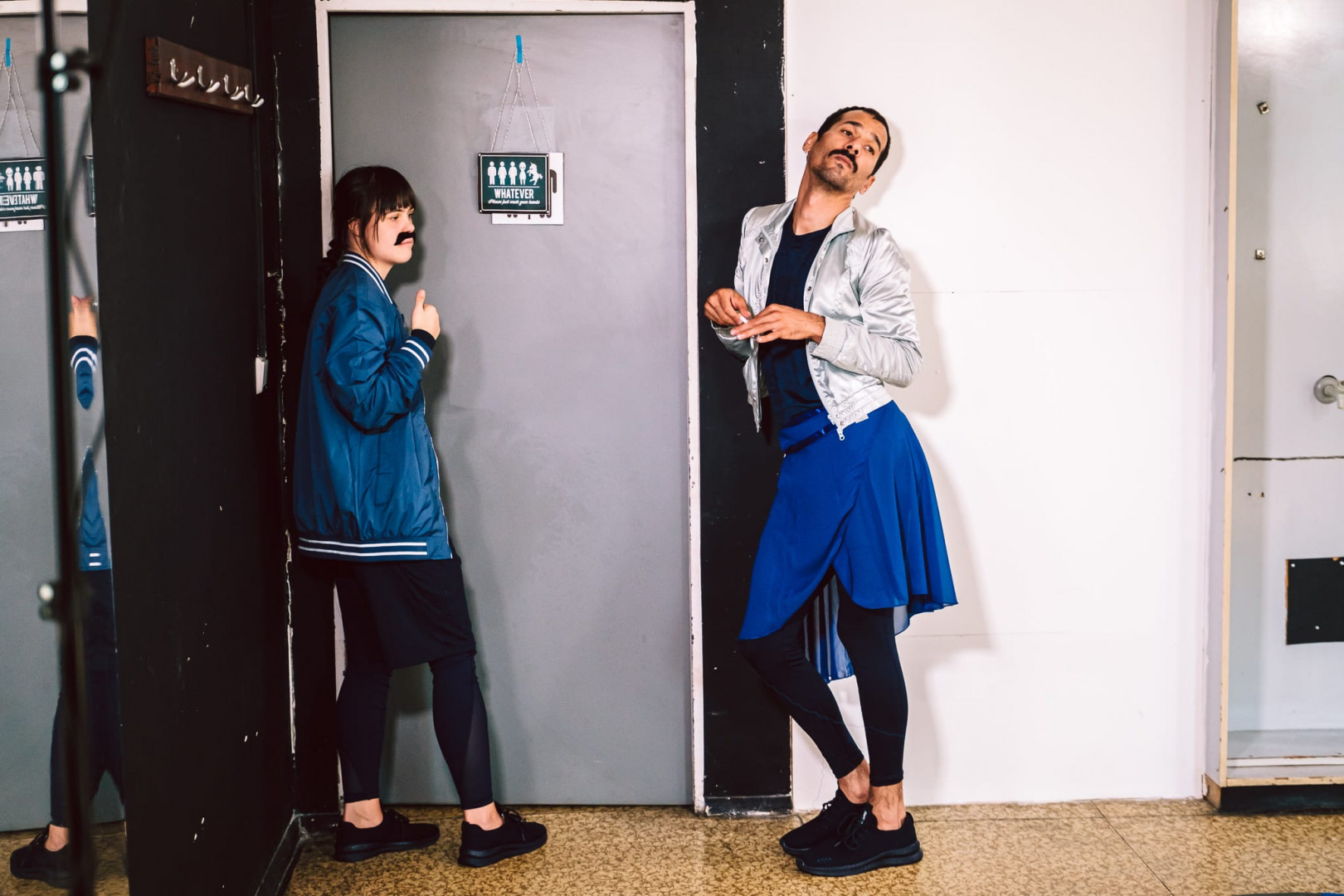
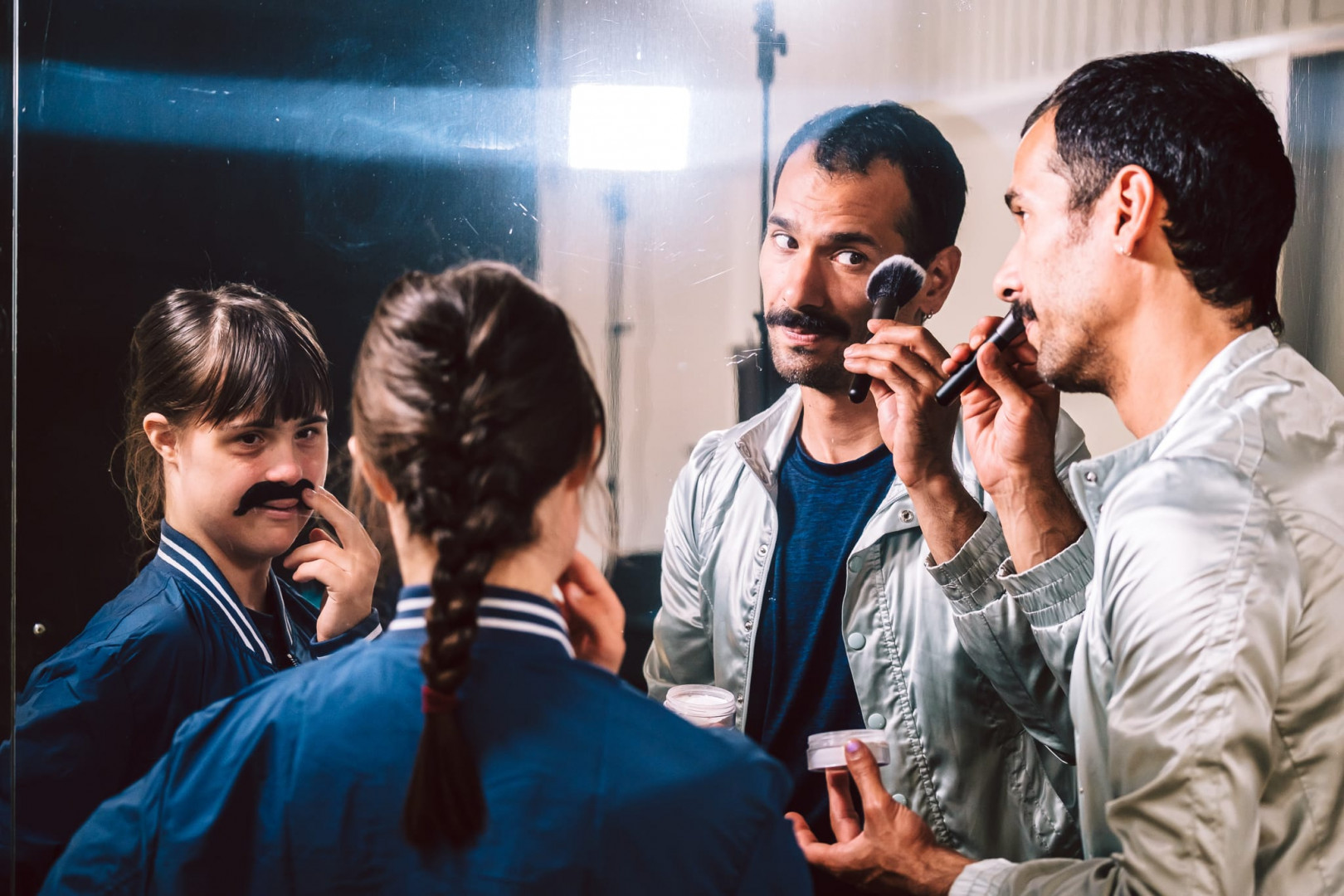
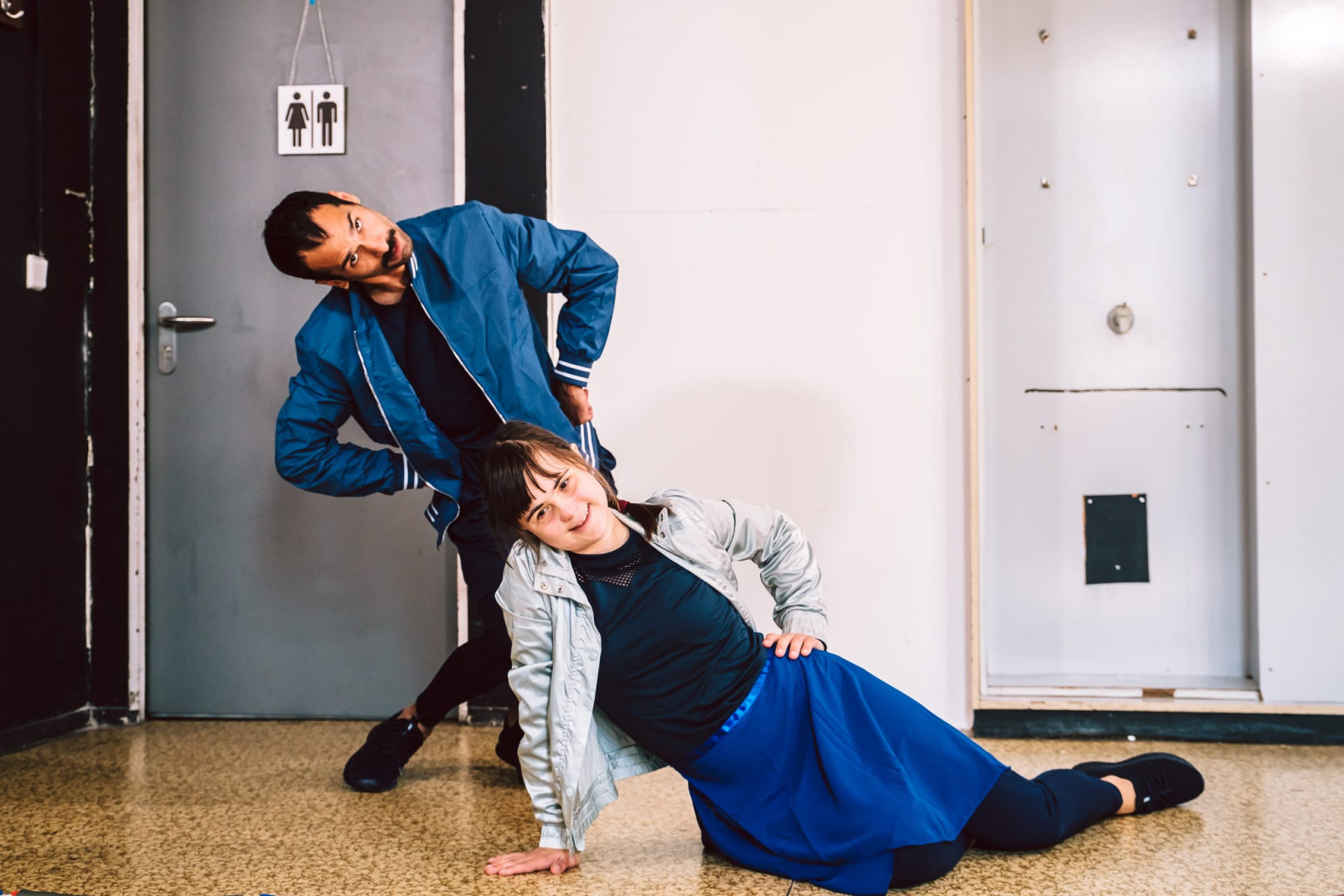
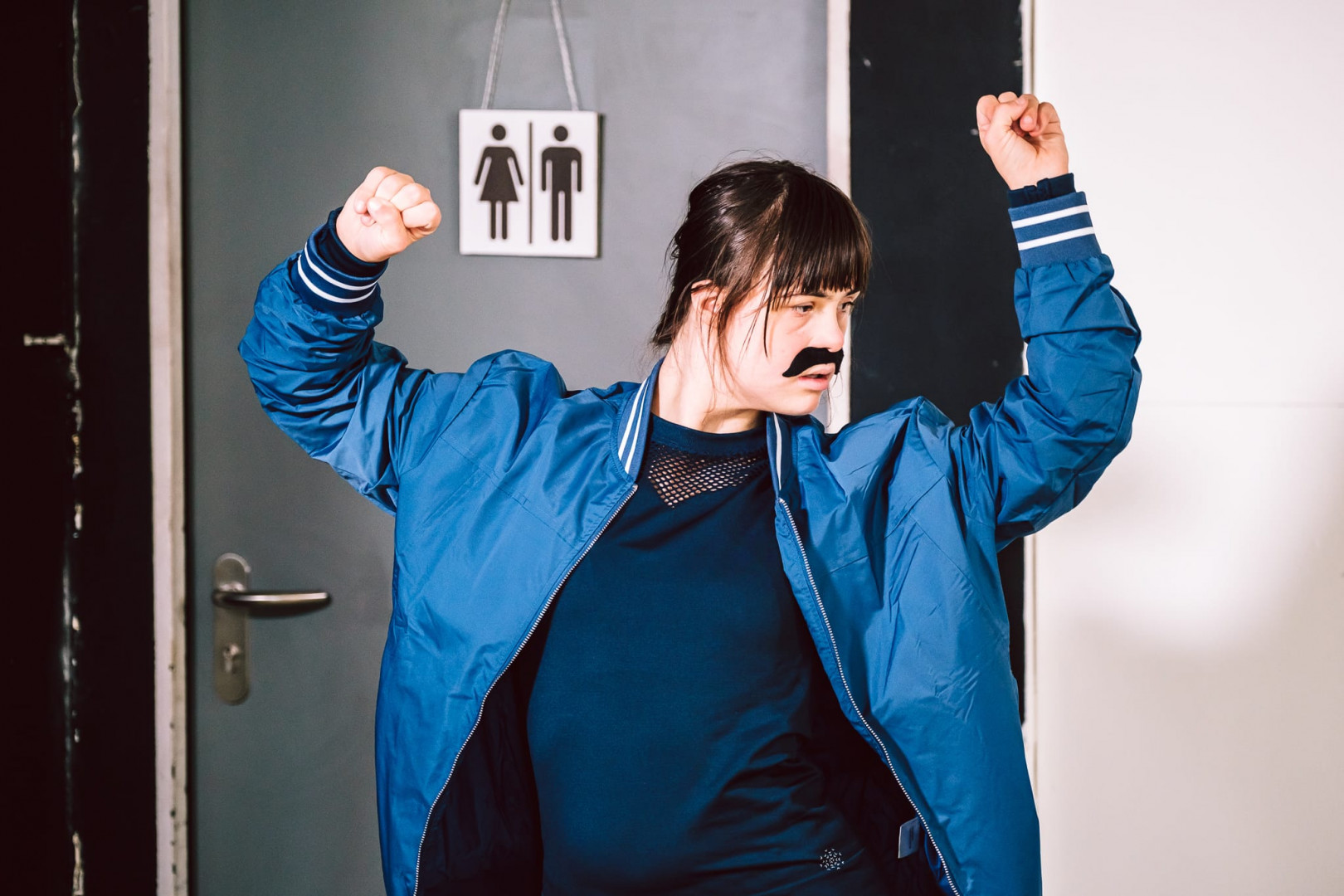
Watching theater
We recommend the RambaZamba Theatre plays for all young people aged 14 and above. If you would like to come to us as a group or class, we offer various formats to accompany the theatre visits. Our formats make it possible to experience the RambaZamba Theatre as an extracurricular place of learning and to implement inclusive participation.
Follow-up discussions
We meet after the performance and talk about what we have seen. What was presented how and in what way? What were our favourite moments? Where were there irritations?
Workshops on the productions
We work practically on the themes of the plays and give an insight into the aesthetics and history of RambaZamba Theatre.
Workshops on inclusive work
What are the requirements for the success of inclusive theatre work? Practical and theoretical input are combined in this workshop.
Productions
HerbstLab: Liebsbriefä
In cooperation with DT Jung*
Sometimes people love each other but can't be together. Then they write each other: love letters! The holiday workshop by DT Jung* and the Young RambaZamba Theatre invites you to write new love letters together or rediscover old love letters. Whether in ink on paper, as a WhatsApp, as a DM on Instagram or as a link to your favourite song - all these declarations of love will be collected, discussed and finally presented. The HerbstLab Liebesbriefä brings together participants with and without disabilities. The rehearsal and presentation rooms are barrier-free.
Artistic direction: Mirah Laline, Lillian Bocksch, Sascha Vajnstajn Dramaturgy: Joy von Wienskowski
Premiere: 2 November 2024 at the Deutsches Theater
Stabat Mater
The ‘Stabat Mater’ is one of the central religious texts of the West and has been the basis of many musical settings. The text tells of Mary's grief for her crucified son Jesus. The version by Estonian composer Arvo Pärt is a central component of the project, which will now be performed in the Tischlerei of the Deutsche Oper. The production is a collaboration between the Junge Deutsche Oper and the Junges RambaZamba Theater, in which an ensemble of 25 young people from a wide range of backgrounds with and without disabilities worked together over several months. Based on music-theatrical research into feelings and the dramatic expression of emotions on the opera and theatre stage, the young performers examined the feelings of sadness, anger and fear in particular, as well as how they deal with these emotions individually and collectively.
With: Aila Wittig, Anastasiia Hryshchenko, Alya Share, Bohdan Pyliavskyi, Charlotte Ausan, Csilla Feher, Daniel Beesk, Denise Soliva, Felix Hasselbach, Ivan Rabosh, Leander Helm, Lotte Latscha, Louise Dessau, Malina Höfflin, Milica Milic, Niklas Ufer, Niklas Weise, Nuria Kovacs, Leif Lapuks, Parastu Ghashghaie, Paulina Schulz, Setareh Hashemi, Tony Plate, Valeriia Beketova Musical direction Piece development: Misha Cvijovic Scenic design / choreographic assistance: Fernando Balsera Pita Percussion / musical assistance: Antonio Rivero Costumes: Carlotta Dering, Marlene van Dieken Dramaturgy: Loretta Würtenberger Assistant director: Til Roller Conducting: N. N. Soprano: Meechot Marrero Mezzo-soprano: Oleksandra Diachenko Tenor: Chance Jonas-O'Toole Violin: Tina Kim Viola: Seo-Hyeun Lee Cello: Stephan Buchmiller
Premiere: 5 April 2024 at Deutsche Oper